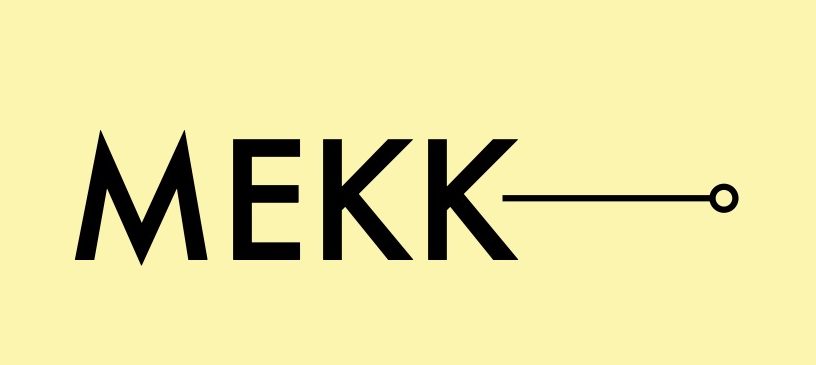Call for abstracts – Research Group MEKK’s 5th annual conference on the Safety of Journalists – Digital Safety
Oslo November 6, 7 and 8th 2019
The conference will take place in Oslo on November 6, 7 and 8th 2019 in connection with UNESCO’s International Day to End Impunity for Crimes against Journalists at OsloMet University and The Freedom of Speech Foundation (Fritt Ord), Norway.
The conference is organized jointly with the The Fritt Ord Foundation and with support from The National Commission for UNESCO and Digital Journalism Research Group.
Safety for journalists, including digital safety, is a matter of public concern that is wide-ranging. It is vital for those who practice journalism, for their families and for their sources. It is essential for the wellbeing of media institutions, civil society, academia and the private sector more broadly. If we value the free flow of information for citizens, their governments and their international organisations, then the safety of journalists is central (Getachew Engida, Deputy Director-General of UNESCO).
Electronic communications of news media, critical bloggers, and other individuals or organizations disseminating information have become targets. The danger emanates from various sources ranging from State-based actors to third parties. There is digital surveillance that goes beyond international standards on privacy and freedom of expression. There is hacking of data and disruptive attacks on websites and computer systems. More extremely, some media actors are being killed for their online journalism. From 2011-2013, 37 of the 276 killings of journalists condemned by the UNESCO Director General were killings of journalists whose primary platforms were Internet-based. Many, if not most, of the other journalists who were killed also used digital tools in their daily work, which may have exposed them in various ways. (Jennifer R. Henrichsen et.al. Building digital safety for journalism: a survey of selected issues. 2015).
Journalists need to know more about the dangers of digital attacks such as hacking and surveillance, and should take steps to protect themselves, their sources, and their work. Journalism researchers and educators need to know more about how the dangers to digital safety work in relation to journalists’ security and freedom of expression in general.
The 2019 annual conference on the Safety of Journalists will focus on digital safety but also invite papers discussing other aspects related to the safety of journalists. We invite paper presentations discussing topics such as (but not limited to)[i]:
- Surveillance and mass surveillance
- Software and hardware exploits without the knowledge of the target
- Phishing, fake domain, Denial of Service and Man-in-the-Middle attacks
- Intimidation, harassment and forced exposure of online networks
- Disinformation and smear campaigns
- Confiscation of journalistic work product
- Data storage and mining
- Education and training
- Legal issues and policy making
- Culture and gender issues
- Working conditions and media production
- Source protection and the digital era
- Hate speech, defamation and libel
- Impunity
- Journalist roles and fixers
- NGOs and the safety of journalists
The conference will be organised as a mixture of key note speakers, working groups, panels and paper presentations.
Confirmed keynote speakers:
- Muthoki Mumo. Sub-Saharan Africa Representative. Committee to Protect Journalists. Formerly a journalist with the Nation Media Group and alternate digital editor for the Business Daily in Kenya.
- Silvio Waisbord. Professor in the School of Media and Public Affairs at the George Washington University. His most recent book is “Communication: A Post-Discipline” (Polity, 2019). He is past editor-in-chief of the Journal of Communication and the International Journal of Press/Politics.
- Guy Berger. UNESCO, Director of Media Freedom Division
- Olivia Martin. Digital Security Trainer at Freedom of the Press Foundation. A graduate of NYU’s Gallatin School of Individualized Study, her professional work focuses on researching and delivering digital security trainings to journalists, activists, and human rights defenders.
- Neena Kapur. Currently a senior information security analyst at The New York Times, where she researches and implements security solutions to combat modern threats targeting journalists and the media industry. Neena previously worked as a cyber threat intelligence analyst, where she researched cybercriminal activity. At the conference Kapur will share her team’s experience creating and running a doxxing education program at The New York Times. She’ll cover why doxxing is a threat to journalists, recommended tools and techniques for cleaning up your online footprint, and the process that the New York Times Information Security team went through to build this program within their newsroom.
- Leandro Demori. Executive Editor The Intercept Brazil. Demori is also the author of La Cosa Nostra in Brazil: The Story of the Mafioso that Took Down the Empire (Companhia das Letras, 2016) and is a board member of the Brazilian Association of Investigative Journalism (Abraji). In the 2000s, he was an editor of the award-winning independent blog A Nova Corja (The New Scum), considered one of the “blogs of the decade” by O Estado de São Paulo newspaper.
Paper presentations:
If you want to participate with a paper, an abstract of maximum 500 words and a short bio focusing on possible earlier experience with research/practice in the field of safety of journalists/digital safety should be sent to safetyofjournalists@oslomet.no before August 15, 2019. Please include your full name, institutional affiliation, and email. There is no registration fee and the participants are expected to cover their own costs for travel and accommodation.
A limited number of scholarships to cover flight and/or accommodation is available for Ph.D. students and researchers from low-income countries. Applications for scholarships should be submitted with the abstract together with a short CV.
The best papers will be considered for a forthcoming peer reviewed publication.
[i] See Henrichsen, Jennifer R., Betz, Michelle, Lisosky, Joanne M. Building digital safety for journalism: a survey of selected issues. UNESCO 2015 for a more detailed list of digital challenges.
